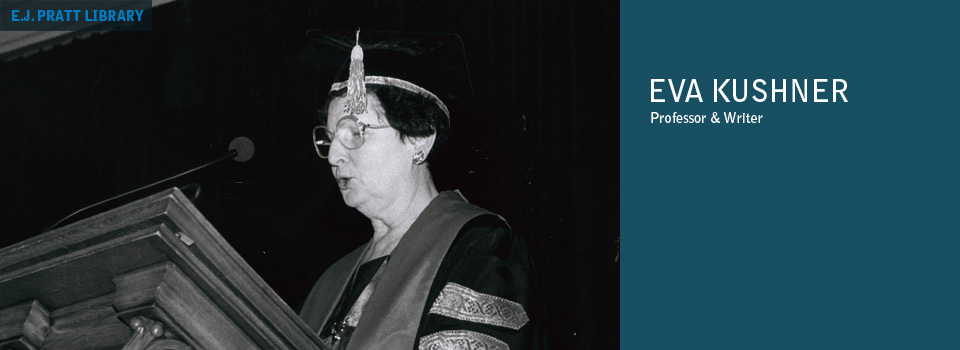Thoughts on Education at Victoria: An Excerpt from an Address to the Graduates’ Christmas Luncheon
Vic Report 2.3 (1994): 3–4.
At Victoria, I have had many opportunities to reflect on the goals of education, liberal and otherwise, in connection with the current perception that, on the one hand, knowledge is power and power is knowledge, but on the other hand, especially from the standpoint of young people, the individual person is generally powerless. Education must lead to empowerment and indeed, self-empowerment.
We must educate self-empowered individuals, people whose success and happiness in life will not depend on external forces (whether these were driven by political incorrectness or correctness) and who will have the inner resources necessary to resist the encroachment of those levelling forces and their invitations to conform to stereotypes. To educate people who will feel absolutely at ease with themselves and all their determinants: ethnic and racial origin, language, age, gender, sexuality and any other factors which define them and over which they have no initial control, so as to enable them to concentrate on those things over which they do have control. If this sounds like some kind of Canadian neo-humanism, then let us all be Canadian neo-humanists, and join the thought of Northrop Frye in bringing together what he calle the myth of concern and which relates to our responsibilities in the world, with our intellectual and spiritual myths expressed in literature, with the Bible as supreme model.
The political maturity for which we strive as a democracy implies, on the part of the individual, the ability to be fully part of the collectivity without in any way giving up the power to think, to judge, to influence, to resist if necessary. As one pursues this trend of thought, one realizes that there is power—a different, but very resilient kind of power—in thought and creation. Is this too idealistic, especially when we realize the combined burden of all the depersonalizing forces to which the human being is submitted: the economic, social, psychological and increasingly, the technological forces that drive our existence? Through this maze of depersonalizing determinants the human self, fragmented and elusive, must wind its way. That is where we are. But there is strength in being aware of that situation, and the awareness itself is the beginning of a realistic, adventurous, rocky, diverse, disquieting but, because of that, infinitely interesting discovery of how the Other fares in the same situation. At Victoria, students (and I would venture to say, faculty and staff) learn to discover that Other as different but equal. Diversity is not easy to practise and in the close contact of the residences, for example, perfect understanding among individuals of widely differing cultures, races, backgrounds, is not always the case, but there is an intense learning process which eventually takes over and leads, not just to coexistence, but, often, to life-long friendships.
Last updated: March 25, 2015
 Ask Us
Ask Us
